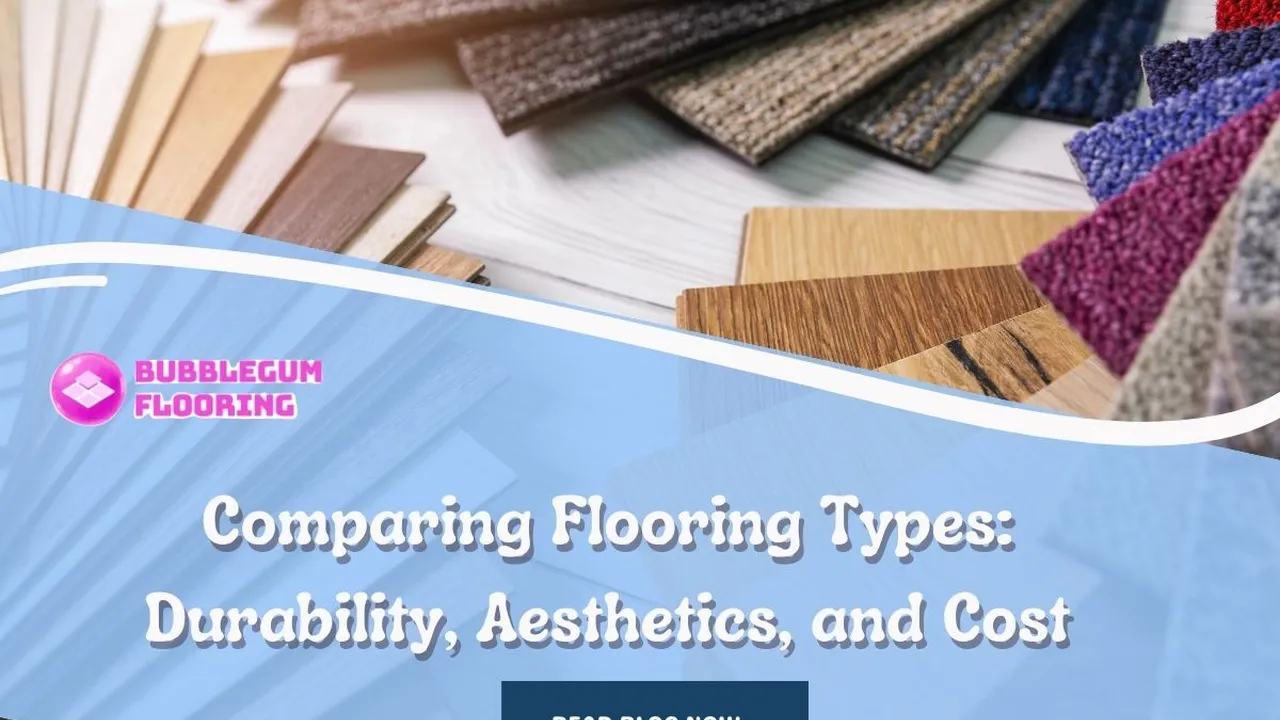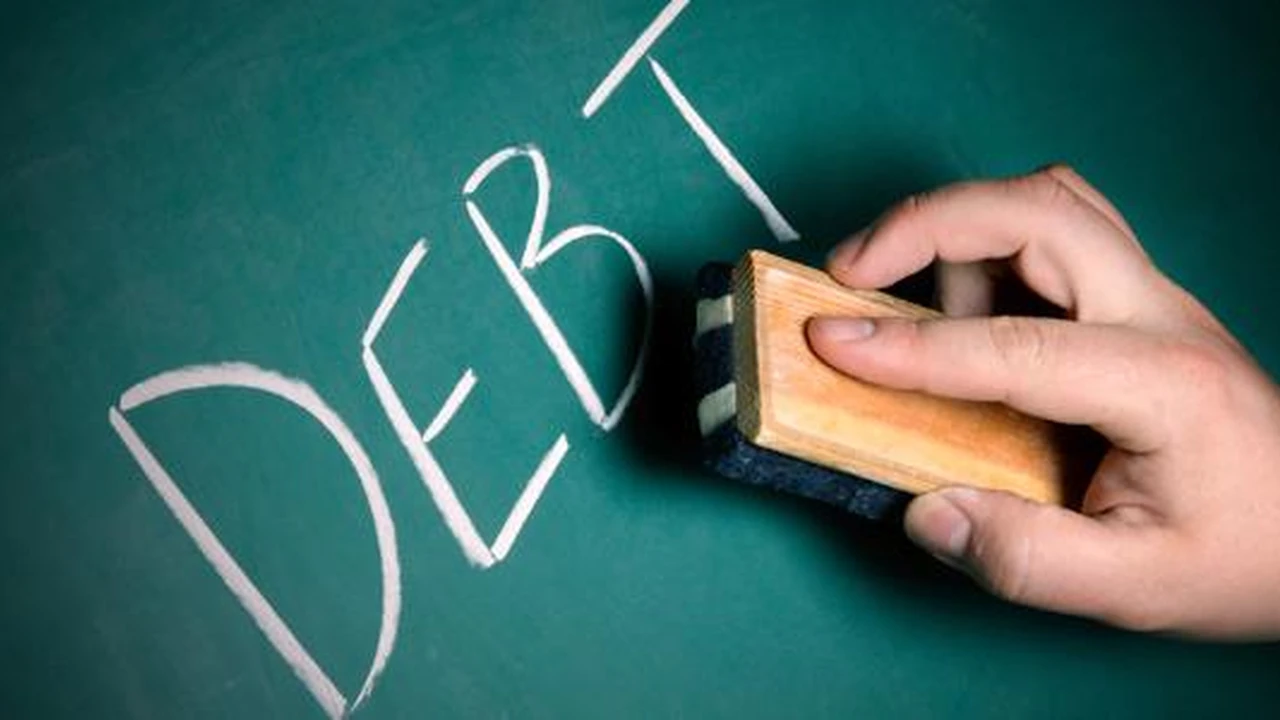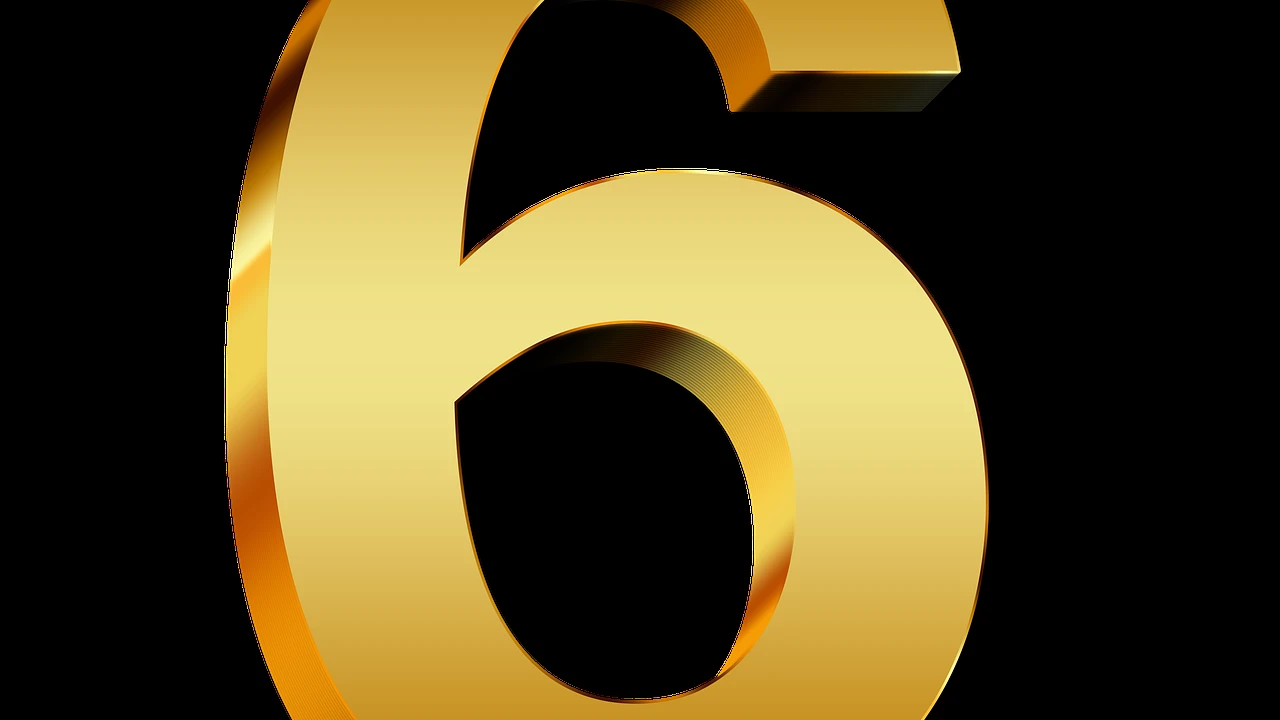Comparing Different Types of Flooring Options
Understand the pros and cons of various flooring options to choose the best for your home.

Comparing Different Types of Flooring Options
Choosing the right flooring for your home can feel like a monumental task, right? There are so many options out there, each with its own set of benefits and drawbacks. It's not just about how it looks; you've got to think about durability, maintenance, cost, and how it fits with your lifestyle. Whether you're renovating your entire house or just sprucing up a single room, picking the perfect floor is crucial for both aesthetics and functionality. Let's dive deep into the most popular flooring types, compare them, and help you make an informed decision for your modern living space.
Hardwood Flooring The Classic Choice for Timeless Elegance
Hardwood flooring has been a favorite for centuries, and for good reason. It offers unparalleled warmth, beauty, and a timeless appeal that can significantly increase your home's value. When we talk about hardwood, we're usually looking at solid hardwood or engineered hardwood. Solid hardwood is exactly what it sounds like: a solid piece of wood from top to bottom. Engineered hardwood, on the other hand, has a top layer of real wood veneer over multiple layers of plywood or high-density fiberboard. This construction makes engineered hardwood more stable and less prone to expanding and contracting with humidity changes, making it a great option for basements or areas with fluctuating moisture levels.
Pros of Hardwood Flooring
- Durability and Longevity: With proper care, hardwood floors can last for decades, even centuries. They can be refinished multiple times to remove scratches and wear, making them look new again.
- Aesthetic Appeal: The natural beauty of wood adds warmth and character to any room. It comes in a vast array of species, colors, and finishes, allowing for endless design possibilities.
- Increased Home Value: Hardwood floors are a highly sought-after feature and can significantly boost your home's resale value.
- Easy to Clean: A simple sweep or vacuum, followed by a damp mop, is usually all it takes to keep them clean.
- Hypoallergenic: Unlike carpets, hardwood doesn't trap dust, pet dander, or other allergens, making it a healthier choice for allergy sufferers.
Cons of Hardwood Flooring
- Cost: Hardwood is generally one of the more expensive flooring options, both for materials and installation.
- Susceptibility to Scratches and Dents: While durable, hardwood can be scratched by pet claws, furniture, or high heels. Heavy objects dropped on the floor can also cause dents.
- Moisture Sensitivity: Solid hardwood is particularly vulnerable to moisture, which can cause warping, cupping, or buckling. Engineered hardwood is more resistant but not entirely waterproof.
- Noise: Hardwood floors can be noisy, especially in high-traffic areas or if not properly installed with an underlayment.
Popular Hardwood Products and Pricing
When considering hardwood, you'll find a wide range of options. For solid hardwood, popular choices include oak, maple, and hickory. For example, Mohawk's TecWood Essentials engineered hardwood offers a great balance of durability and style, often ranging from $4 to $8 per square foot for materials. For a more premium solid hardwood, Armstrong Flooring's Bruce Hardwood lines can range from $6 to $12 per square foot. Installation costs typically add another $3 to $8 per square foot, depending on complexity and location. For a 1000 sq ft home, you could be looking at $7,000 to $20,000 for materials and installation.
Laminate Flooring The Budget-Friendly Wood Lookalike
Laminate flooring is a fantastic alternative if you love the look of hardwood but are working with a tighter budget. It's made from synthetic materials, typically a high-density fiberboard core topped with a photographic layer that mimics wood, stone, or tile, and then sealed with a clear protective wear layer. Laminate has come a long way in terms of realism and durability, making it a very popular choice for many homeowners.
Pros of Laminate Flooring
- Affordability: Significantly less expensive than hardwood, making it accessible for more budgets.
- Durability: The wear layer makes laminate highly resistant to scratches, dents, and stains, making it ideal for high-traffic areas and homes with pets or kids.
- Easy Installation: Many laminate products feature a click-and-lock system, making DIY installation a viable option for handy homeowners.
- Low Maintenance: Easy to clean with regular sweeping or vacuuming and occasional damp mopping.
- Versatility: Available in a vast array of styles, colors, and patterns that convincingly mimic natural materials.
Cons of Laminate Flooring
- Moisture Sensitivity: While more resistant than solid hardwood, laminate is still susceptible to water damage if spills are not cleaned up quickly. Excessive moisture can cause swelling and warping.
- Cannot Be Refinished: Unlike hardwood, laminate cannot be sanded and refinished. If the wear layer is damaged, the plank needs to be replaced.
- Less Authentic Feel: Despite advancements, laminate can sometimes feel less substantial or sound hollow compared to real wood.
- Environmental Concerns: Some laminate products may contain VOCs (Volatile Organic Compounds), though many manufacturers now offer low-VOC options.
Popular Laminate Products and Pricing
Brands like Pergo Outlast+ are well-regarded for their durability and water resistance, often costing between $2.50 and $4.50 per square foot for materials. TrafficMaster Allure from Home Depot is another popular budget-friendly option, typically ranging from $1.50 to $3.00 per square foot. Installation for laminate can be as low as $1.50 per square foot if you DIY, or $2.00 to $5.00 per square foot for professional installation. For a 1000 sq ft area, expect to pay $4,000 to $9,500 for materials and installation.
Luxury Vinyl Plank LVP and Luxury Vinyl Tile LVT The Waterproof Wonder
Luxury Vinyl Plank (LVP) and Luxury Vinyl Tile (LVT) have exploded in popularity, and it's easy to see why. These products offer incredible realism, mimicking wood and stone with impressive detail, but with the added benefit of being highly water-resistant, if not completely waterproof. LVP comes in planks to resemble hardwood, while LVT comes in tiles to mimic stone or ceramic. They are constructed with multiple layers, including a durable wear layer, a printed design layer, and a resilient core.
Pros of LVP and LVT Flooring
- Waterproof/Highly Water-Resistant: This is a major selling point, making LVP/LVT ideal for bathrooms, kitchens, basements, and other moisture-prone areas.
- Durability: The wear layer provides excellent resistance to scratches, dents, and scuffs, making it great for busy households.
- Comfort Underfoot: Vinyl tends to be softer and warmer than tile or stone, offering more comfort.
- Easy Maintenance: Simple to clean with regular sweeping and damp mopping.
- Affordability: Generally more affordable than hardwood or natural stone, while still offering a high-end look.
- Easy Installation: Many LVP/LVT products are designed for DIY-friendly click-and-lock or peel-and-stick installation.
Cons of LVP and LVT Flooring
- Cannot Be Refinished: Like laminate, LVP/LVT cannot be refinished. Damaged planks or tiles need to be replaced.
- Susceptibility to Dents from Heavy Objects: While durable, very heavy furniture or appliances can still cause indentations over time.
- Less Eco-Friendly: As a synthetic product, it's not as environmentally friendly as natural materials, though recycling programs are emerging.
- Fading: Prolonged exposure to direct sunlight can cause some vinyl products to fade over time.
Popular LVP/LVT Products and Pricing
For high-quality, waterproof LVP, consider Coretec Plus, which often ranges from $4 to $7 per square foot for materials. Shaw Floorte is another excellent option, with prices typically between $3.50 and $6.50 per square foot. For a more budget-friendly LVP, brands like LifeProof Vinyl Plank Flooring (available at Home Depot) can be found for $2.50 to $4.00 per square foot. Professional installation for LVP/LVT usually runs from $2.00 to $5.00 per square foot. For a 1000 sq ft area, expect to pay $4,500 to $12,000 for materials and installation.
Tile Flooring Ceramic and Porcelain The Versatile and Durable Option
Tile flooring, encompassing ceramic and porcelain, is incredibly versatile and durable, making it a popular choice for kitchens, bathrooms, entryways, and even living areas. Both ceramic and porcelain tiles are made from clay and other natural materials, fired at high temperatures. Porcelain tiles are generally denser, less porous, and more durable than ceramic tiles, making them suitable for high-traffic areas and outdoor use. Ceramic tiles are a bit softer and more prone to chipping but are often more affordable.
Pros of Tile Flooring
- Durability and Longevity: Extremely hard-wearing and resistant to scratches, dents, and heavy traffic. Can last for decades.
- Waterproof: When properly installed with sealed grout, tile is virtually impervious to water, making it perfect for wet areas.
- Low Maintenance: Easy to clean with sweeping, vacuuming, and occasional mopping.
- Versatility: Available in an endless array of colors, patterns, sizes, and textures, mimicking everything from wood to natural stone.
- Hypoallergenic: Does not harbor allergens.
- Radiant Heating Compatible: Excellent conductor of heat, making it ideal for use with radiant floor heating systems.
Cons of Tile Flooring
- Hardness: Can be uncomfortable to stand on for long periods and unforgiving if you drop something fragile.
- Cold Underfoot: Can feel cold, especially in cooler climates, unless paired with radiant heating.
- Grout Maintenance: Grout lines can stain and require regular cleaning and sealing to prevent mildew and discoloration.
- Slippery When Wet: Some glazed tiles can be very slippery when wet, though textured or matte finishes can mitigate this.
- Complex Installation: Installation is more labor-intensive and often requires professional expertise, increasing overall cost.
Popular Tile Products and Pricing
For durable porcelain tile, Daltile offers a wide range of styles, with prices typically from $2 to $8 per square foot for materials. Marazzi is another reputable brand known for its stylish ceramic and porcelain options, often in the $3 to $10 per square foot range. For a more budget-friendly ceramic tile, you can find options at Home Depot or Lowe's for as low as $0.79 to $2.00 per square foot. Installation for tile is usually the most expensive part, ranging from $5 to $15 per square foot, depending on the complexity of the pattern and subfloor preparation. For a 1000 sq ft area, expect to pay $7,000 to $23,000 for materials and installation.
Carpet Flooring The Cozy and Quiet Option
Carpet flooring offers unmatched comfort, warmth, and sound absorption, making it a popular choice for bedrooms, living rooms, and family rooms. It comes in various fibers, pile heights, and textures, each offering different levels of durability and softness. Nylon is known for its resilience, polyester for its stain resistance, and wool for its natural softness and luxury.
Pros of Carpet Flooring
- Comfort and Warmth: Soft underfoot and provides excellent insulation, keeping rooms warmer.
- Sound Absorption: Significantly reduces noise, making rooms quieter and more peaceful.
- Safety: Provides a softer landing in case of falls, making it ideal for homes with young children or elderly residents.
- Affordability: Generally one of the most budget-friendly flooring options, especially for basic styles.
- Versatility: Available in a vast array of colors, patterns, and textures to match any decor.
Cons of Carpet Flooring
- Maintenance: Requires regular vacuuming and occasional deep cleaning to remove dirt, dust, and allergens.
- Stain Susceptibility: Can be prone to staining, especially lighter colors, though many modern carpets come with stain-resistant treatments.
- Traps Allergens: Can trap dust, pet dander, and other allergens, which can be problematic for allergy sufferers.
- Durability: While some carpets are very durable, they generally have a shorter lifespan than hard surface flooring and can show wear in high-traffic areas.
- Moisture Issues: Can be damaged by excessive moisture, leading to mold or mildew growth if not dried properly.
Popular Carpet Products and Pricing
For durable and stain-resistant carpet, Mohawk SmartStrand is a popular choice, often ranging from $2.50 to $5.00 per square foot for materials. Shaw LifeGuard carpets offer excellent water resistance, typically priced between $3.00 and $6.00 per square foot. For a more budget-friendly option, you can find basic polyester carpets for $1.00 to $2.50 per square foot. Installation for carpet usually ranges from $1.00 to $3.00 per square foot, including padding. For a 1000 sq ft area, expect to pay $2,000 to $9,000 for materials and installation.
Concrete Flooring The Modern Industrial Look
Concrete flooring, once relegated to basements and garages, has emerged as a stylish and durable option for modern homes, especially those embracing an industrial or minimalist aesthetic. It can be stained, polished, or even stamped to mimic other materials, offering a unique and contemporary look.
Pros of Concrete Flooring
- Extreme Durability: Virtually indestructible and can withstand heavy traffic, spills, and impacts.
- Longevity: Can last a lifetime with minimal maintenance.
- Versatility: Can be stained, dyed, polished, or textured to achieve a wide range of looks.
- Low Maintenance: Easy to clean with sweeping and occasional damp mopping.
- Energy Efficient: Can absorb and release heat, helping to regulate indoor temperatures.
- Hypoallergenic: Does not harbor allergens.
Cons of Concrete Flooring
- Hardness: Very hard and unforgiving, which can be uncomfortable and lead to breakage of dropped items.
- Cold Underfoot: Can feel very cold, especially in cooler climates, unless radiant heating is installed.
- Slippery When Wet: Can be slippery, especially if polished, though anti-slip additives can be used.
- Cracking: While durable, concrete can crack over time due to settling or extreme temperature changes.
- Installation Complexity: Requires professional installation and can be a messy process.
Popular Concrete Finishing Options and Pricing
For a polished concrete look, expect to pay $3 to $12 per square foot, depending on the level of polish and finish. Stained concrete can range from $2 to $8 per square foot. For a more intricate stamped concrete, prices can go up to $10 to $20 per square foot. These prices typically include both materials and labor, as it's almost always a professional job. For a 1000 sq ft area, you could be looking at $2,000 to $20,000, depending on the desired finish and complexity.
Making Your Flooring Decision What to Consider
So, how do you choose the best flooring for your home? It really boils down to a few key factors:
Lifestyle and Usage Considerations
Do you have pets? Kids? Are you a busy professional who needs low-maintenance solutions? If you have a house full of active kids and pets, you'll want something highly durable and scratch-resistant like LVP or porcelain tile. If you value comfort and quiet, carpet might be your best bet for bedrooms. For high-traffic areas like entryways and kitchens, durability and water resistance are key, making tile or LVP excellent choices.
Budgeting for Your Flooring Project
Flooring costs can vary wildly. It's not just the material cost; remember to factor in installation, subfloor preparation, and any old flooring removal. Get multiple quotes from different contractors and always ask for a detailed breakdown of costs. Sometimes, a slightly higher upfront cost for a more durable material can save you money on repairs or replacement down the line.
Aesthetic and Design Preferences
What's your home's overall style? Do you prefer a modern, minimalist look, or something more traditional and cozy? Hardwood offers classic elegance, while concrete brings an industrial edge. LVP and laminate can mimic almost any look at a fraction of the cost. Think about how the flooring will complement your furniture, wall colors, and overall decor. Don't forget to consider the lighting in the room, as it can significantly impact how the flooring appears.
Maintenance and Care Requirements
Are you willing to put in the effort for regular cleaning and maintenance? Hardwood requires more care to prevent scratches and moisture damage, while tile and LVP are relatively low-maintenance. Carpet needs regular vacuuming and occasional deep cleaning. Be realistic about how much time and effort you're willing to dedicate to keeping your floors looking their best.
Environmental Impact and Sustainability
If sustainability is a priority for you, consider options like reclaimed hardwood, bamboo (though its durability can vary), or natural linoleum. Look for products with low VOC emissions and those made from recycled content or renewable resources. Many manufacturers are now offering more eco-friendly options across all flooring types, so do your research.
Ultimately, there's no single 'best' flooring option for everyone. The ideal choice for your home will depend on your unique needs, preferences, and budget. By carefully weighing the pros and cons of each type and considering your specific circumstances, you'll be well on your way to selecting the perfect floor that you'll love for years to come. Happy flooring hunting!
:max_bytes(150000):strip_icc()/277019-baked-pork-chops-with-cream-of-mushroom-soup-DDMFS-beauty-4x3-BG-7505-5762b731cf30447d9cbbbbbf387beafa.jpg)






